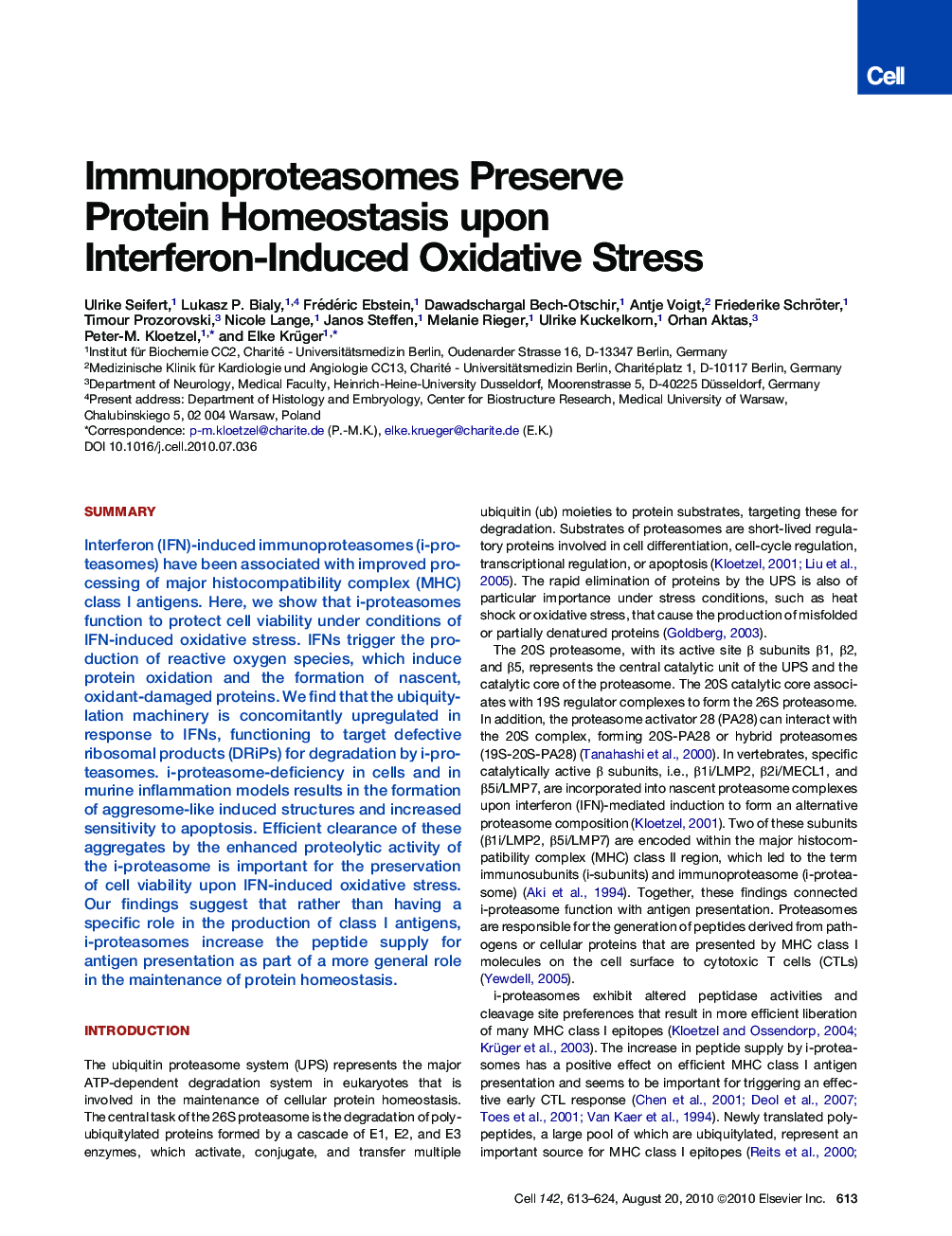| Article ID | Journal | Published Year | Pages | File Type |
|---|---|---|---|---|
| 2036773 | Cell | 2010 | 12 Pages |
SummaryInterferon (IFN)-induced immunoproteasomes (i-proteasomes) have been associated with improved processing of major histocompatibility complex (MHC) class I antigens. Here, we show that i-proteasomes function to protect cell viability under conditions of IFN-induced oxidative stress. IFNs trigger the production of reactive oxygen species, which induce protein oxidation and the formation of nascent, oxidant-damaged proteins. We find that the ubiquitylation machinery is concomitantly upregulated in response to IFNs, functioning to target defective ribosomal products (DRiPs) for degradation by i-proteasomes. i-proteasome-deficiency in cells and in murine inflammation models results in the formation of aggresome-like induced structures and increased sensitivity to apoptosis. Efficient clearance of these aggregates by the enhanced proteolytic activity of the i-proteasome is important for the preservation of cell viability upon IFN-induced oxidative stress. Our findings suggest that rather than having a specific role in the production of class I antigens, i-proteasomes increase the peptide supply for antigen presentation as part of a more general role in the maintenance of protein homeostasis.
Graphical AbstractFigure optionsDownload full-size imageDownload high-quality image (397 K)Download as PowerPoint slideHighlights► IFNs trigger ROS production and the formation of oxidant damaged proteins ► i-proteosome-deficient cells accumulate oxidant-damaged proteins ► Enhanced proteolytic activity of the i-proteasome results in efficient clearance of aggregates ► i-proteasomes prevent cellular damage and apoptosis in murine inflammation models
